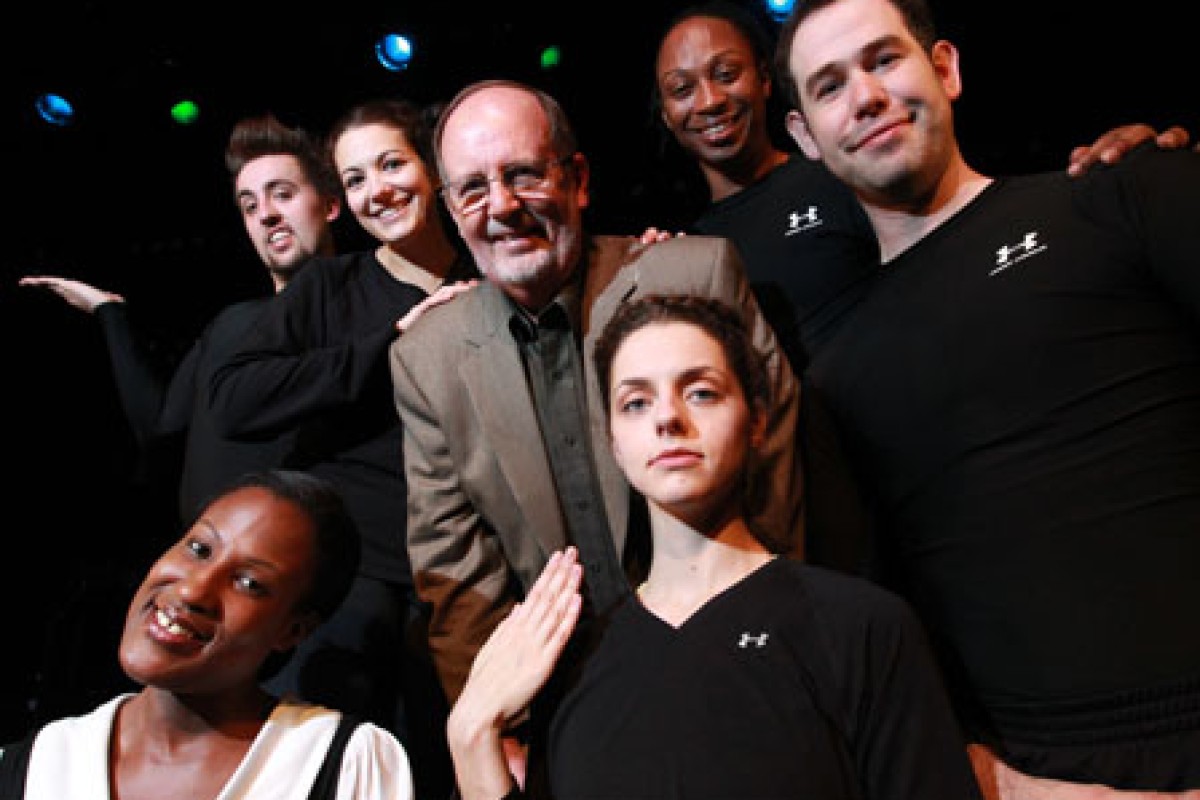 Tim McCarty (center) and the Quest performers believe the arts are for everyone.
Tim McCarty (center) and the Quest performers believe the arts are for everyone.DeWater is a professional performer. He was in Hong Kong last month to perform Alice, a show based on Alice in Wonderland, with Quest, a US theatre group. The play is familiar to anyone who has read the book, with one major exception: there is no dialogue, only visual and sound effects.
Many of the cast, including the 30-year-old DeWater, are hearing impaired.
"I was born with 80 per cent hearing loss in both ears," he says. He is able to speak, however, and doesn't need sign language to communicate. This meant he could attend mainstream schools. He graduated from university with an arts degree and went on to study physical theatre. But life hasn't been easy.
"All my life, I have had to deal with fatigue, depression and isolation on a daily basis. Your friends go away. Your parents don't fully understand what you're going through. I've felt withdrawn from others, from the world."
But life took a turn when he joined Quest in January.
"It's amazing how the group includes everybody - with and without hearing difficulties. I've learned how to sign through interacting with performers with whom I've got to communicate. Working here has made me gentle."
Quest was founded in 1994 by Tim McCarty. The actors come from different cultures and 50 per cent of them have various degrees of hearing loss.
"It is about inclusiveness," says McCarty, who taught English and theatre before setting up the group. He was honoured as a White House Presidential Scholar Outstanding Teacher in 1993.
"Twenty per cent of the population in the United States has some form of disability. So what do we do? Do we leave them out? I choose to include them because it is our reality," says the 63-year-old artistic director.
McCarty says visual theatre is perfect for Quest, as it cuts across all kinds of barriers, be they language, physical ability or culture.
However, working with such a diverse group has its own challenges. It means he needs two sign language interpreters on board. He also needs to educate the audience, as they may not always understand what's going on onstage.
"I think visual theatre is an unfamiliar art form for some people. But once they relax and allow the images to come to them, they can engage in the performance totally," says McCarty. "I've seen audiences cry watching our show because they said it was literally breathtaking."
To DeWater, being hearing impaired is part of what makes him who he is.
"In life, we all face ... problems; it's not just about a disability. And there's no magic wand [to make them disappear]. You just have to keep going until you find your feet," he says.
Quest is partners with Arts with the Disabled Association Hong Kong (ADA) and was brought to Hong Kong as part of an exchange programme.
